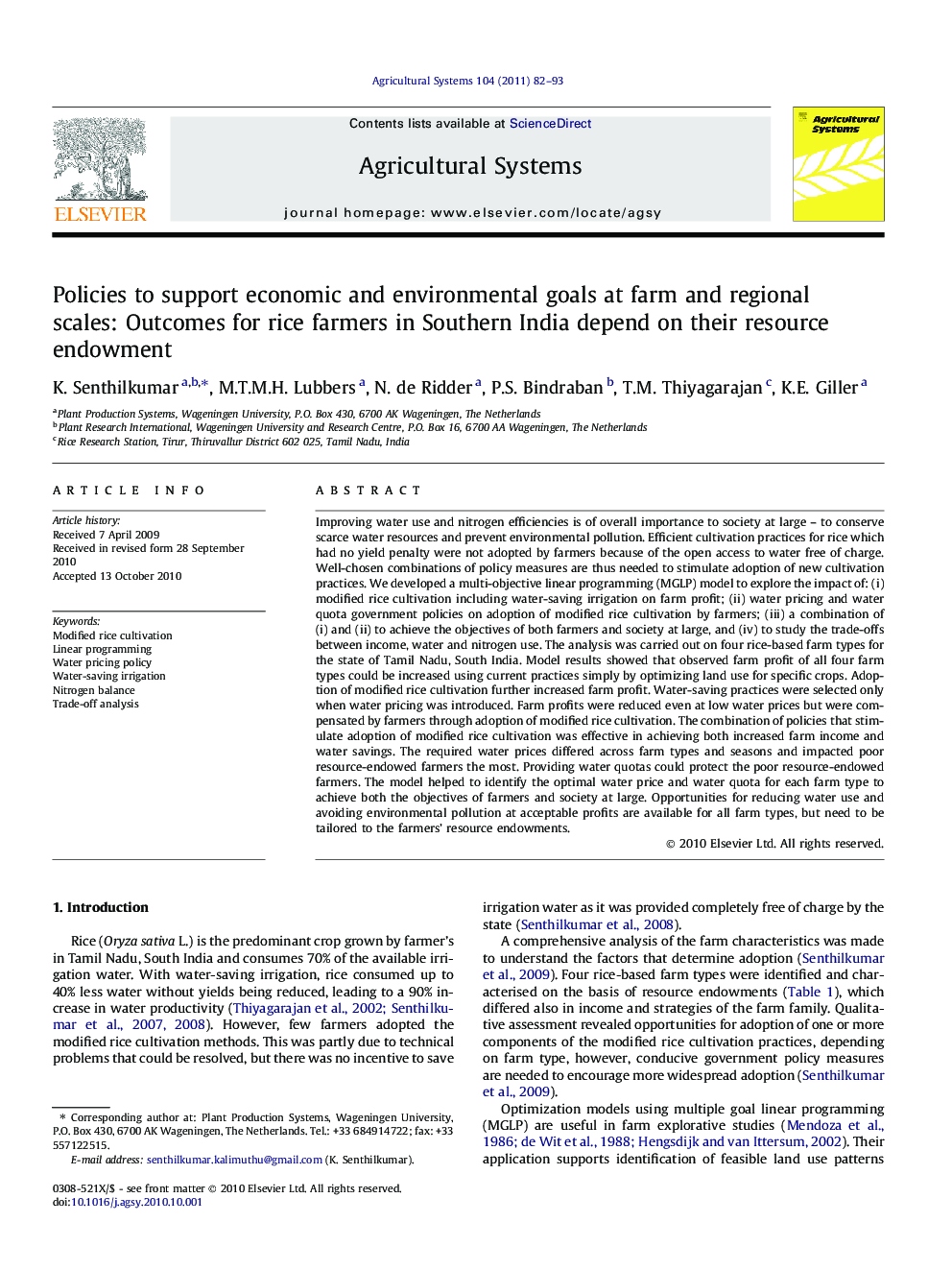| کد مقاله | کد نشریه | سال انتشار | مقاله انگلیسی | نسخه تمام متن |
|---|---|---|---|---|
| 4491552 | 1317861 | 2011 | 12 صفحه PDF | دانلود رایگان |

Improving water use and nitrogen efficiencies is of overall importance to society at large – to conserve scarce water resources and prevent environmental pollution. Efficient cultivation practices for rice which had no yield penalty were not adopted by farmers because of the open access to water free of charge. Well-chosen combinations of policy measures are thus needed to stimulate adoption of new cultivation practices. We developed a multi-objective linear programming (MGLP) model to explore the impact of: (i) modified rice cultivation including water-saving irrigation on farm profit; (ii) water pricing and water quota government policies on adoption of modified rice cultivation by farmers; (iii) a combination of (i) and (ii) to achieve the objectives of both farmers and society at large, and (iv) to study the trade-offs between income, water and nitrogen use. The analysis was carried out on four rice-based farm types for the state of Tamil Nadu, South India. Model results showed that observed farm profit of all four farm types could be increased using current practices simply by optimizing land use for specific crops. Adoption of modified rice cultivation further increased farm profit. Water-saving practices were selected only when water pricing was introduced. Farm profits were reduced even at low water prices but were compensated by farmers through adoption of modified rice cultivation. The combination of policies that stimulate adoption of modified rice cultivation was effective in achieving both increased farm income and water savings. The required water prices differed across farm types and seasons and impacted poor resource-endowed farmers the most. Providing water quotas could protect the poor resource-endowed farmers. The model helped to identify the optimal water price and water quota for each farm type to achieve both the objectives of farmers and society at large. Opportunities for reducing water use and avoiding environmental pollution at acceptable profits are available for all farm types, but need to be tailored to the farmers’ resource endowments.
Research highlights
► Farm profit can be increased by selecting optimal land use activities in the rice-based farms of south India.
► Adopting modified rice cultivation further increased the farm profit, where the degree of impact depended on area under rice cultivation.
► The combination of adopting modified rice cultivation and water pricing and quota policies will enhance water productivity in south India.
► Policies also should address development of irrigation infrastructure and cooperative management of water resources.
Journal: Agricultural Systems - Volume 104, Issue 1, January 2011, Pages 82–93